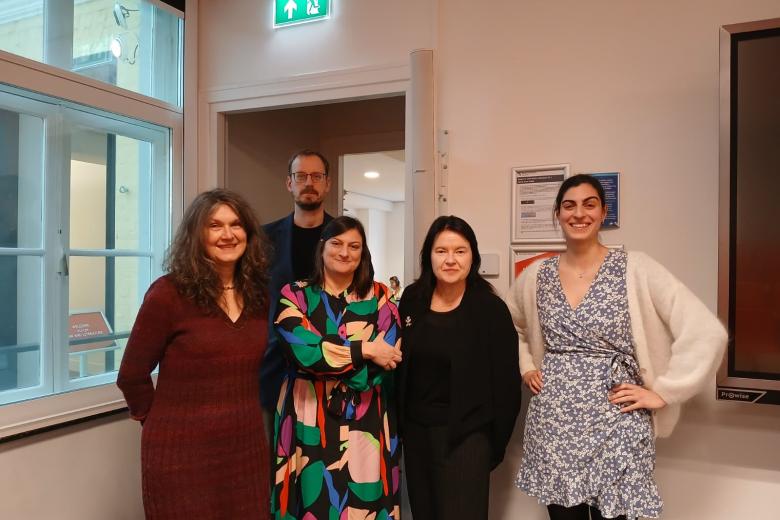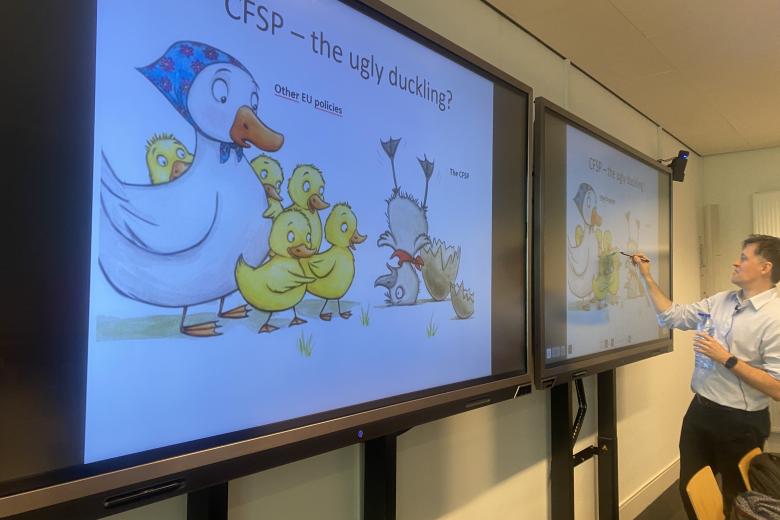Why you can't paint all insomniacs with the same brush
Suffering from insomnia? Take a pill, long term if necessary, and your problem is solved. That is at least the fallacy that many people make. But insomnia is a serious social problem, which affects more than one in ten Dutch people. The sustainable solution is called ‘cognitive behavioural therapy’. Merijn van de Laar, behavioural scientist at the UM department of General Practice, obtained his PhD on this subject at Maastricht University last year. His message: “Don’t paint all insomniacs with the same brush.”
When exactly do people suffer from insomnia?
“According to the clinical definition, you have to struggle with falling asleep, staying asleep or waking up early at least three nights a week. And it must be accompanied by daytime complaints, such as concentration problems, fatigue, increased irritation, and reduced functioning at work or in social circles.”
Or if you don’t get eight hours of sleep per night?
“No, it’s a misconception that everyone has to sleep at least eight hours a night; people are very different. There are short sleepers and long sleepers. There is a gold standard: the first four and a half hours of the night are the most important. It’s then that you have the deep sleep phases in which your body recovers. If you sleep well and have enough times to relax during the day, you should basically be able to go on throughout your day.
But the hours you sleep before midnight count double, right?
“No, that’s also outdated. In the past, people often went to bed earlier and then they had indeed finished a large part of that important sleep phase before twelve o'clock. But if you go to bed at one o'clock at night, you have your main sleep phase between one and half past six.”
Are people with insomnia all worriers, or control freaks?
“That’s part of what I’ve researched. Half of all people suffer from insomnia at times, and the other half sleep trouble-free. And in that first group, you have the 10-12% of people who chronically suffer from insomnia. I wanted to know if those with insomnia have certain personality traits that those in the other group don’t have.”
And?
“In particular, I discovered that about half of the ‘insomniacs’ also suffer from a psychological disorder, such as depression or an anxiety disorder. But previous research into insomniacs has actually made little distinction in this. In that group, you often see personality traits such as perfectionism or a lower stress threshold. But the people who don’t have an additional psychological disorder and only sleep badly have very average personality traits. These conclusions have laid a new foundation for further scientific research into insomnia and personality traits.”
Why is it important to know that?
“Because for people who have insomnia, whether they have additional psychological problems is not always looked at. But cognitive behavioural therapy for insomnia doesn’t work as well for people who also have psychological problems—only for three to four out of ten, while for those who only sleep badly, eight to nine out of ten are satisfied with their sleep after the treatment. Practitioners must therefore be alert to these additional psychological problems. If they’re not also addressed, sleep therapy has much less of an effect.”
How long does this type of treatment take?
“On average, two to three months. This includes looking at what someone is doing around his or her sleep, the sleep hygiene. For example, looking at smartphones just before bedtime is a big problem, because the blue light activates your brain to wake up. Furthermore, during the treatment you learn how to relax better and specific behavioural techniques to promote your sleep. But it also looks at what thoughts and expectations people have about sleep: do you have to sleep nine hours when you’re 60, just like you used to? But the structure of your day also determines your sleep.”
Is not it easier to take a sleeping pill?
“Easier and cheaper. Sleeping pills are no longer covered by insurance, just like sleep therapy, but pills are cheaper. Too many GPs also prescribe pills, while cognitive behavioural therapy is the gold standard treatment. You don’t address the source of the problem with a pill. If you stop, which isn’t easy because they’re addictive, then your problem is still there. Whereas you achieve a better and longer-lasting solution with therapy. It’s always better to sleep naturally than on medication.”
Why did you research this?
“Sleep has always fascinated me because it’s so elusive. What exactly happens when you sleep, what does it do to you? It’s almost magical. When I started working ten years ago as a therapist at Kempenhaeghe, the centre for sleep medicine in Heeze, I decided to do research. And when I saw that many clients at Kempenhaeghe shared characteristics like anxiety, insecurity, and the need for control, I came up with the idea of looking for personality traits of people with insomnia. What makes someone develop insomnia?”
Actually, these don’t exist, is your conclusion?
“Right. It seems to be more related to other factors. For example, stress is an important factor. And finally, some people also perpetuate their sleep problem, for example by lying in bed for more than eight hours, not being able to relax physically or having all kinds of worries about their sleep. Sleep is actually an automatic process. Where a normal sleeper wakes up at night and thinks, ‘I'm awake and I'm going back to sleep’, the bad sleeper thinks, ‘Oh no, I'm awake again!’. These are things that obviously don’t help. And you can address that with therapy much more effectively than with a pill.”
CV Merijn van de Laar
Merijn van de Laar (1979) obtained his PhD on 3 May 2017 for his dissertation entitled ‘Individual differences in insomnia: implications of psychological factors for diagnosis and treatment’. He studied Neuropsychology at Maastricht University and later followed programmes in cognitive behavioural therapy and health care psychology, after which he worked as a sleep therapist at the Kempenhaeghe Centre for Sleep Medicine. Together with Ingrid Verbeek, he has written treatment books for psychologists and therapists on this subject. He is currently working at UM in the General Practice department as a behavioural scientist and curriculum coordinator, and also has his own practice for sleep therapy in Eindhoven: Slaappraktijk Eindhoven .
Also read
-
DigiMach places Meuse-Rhine Euroregion at the heart of industrial digitalisation
DigiMach (Digital Machining) is a new cross-border project uniting Belgium, Germany, and the Netherlands around a common goal: accelerating the digitalisation of the machining industry in the Meuse-Rhine Euroregion.
-
Globalisation & Law Network seminar with Áine Ryall
On 24 November 2025, the Globalisation & Law Network, together with the Institute for Globalisation and International Regulation (IGIR) held the seminar with Professor Áine Ryall.
-
Guest Lecture: Lóránt Havas explores current challenges in the EU’s CFSP
Lóránt Havas delivered a guest lecture on the EU’s evolving CFSP, discussing key legal developments, institutional challenges, and new defence instruments.